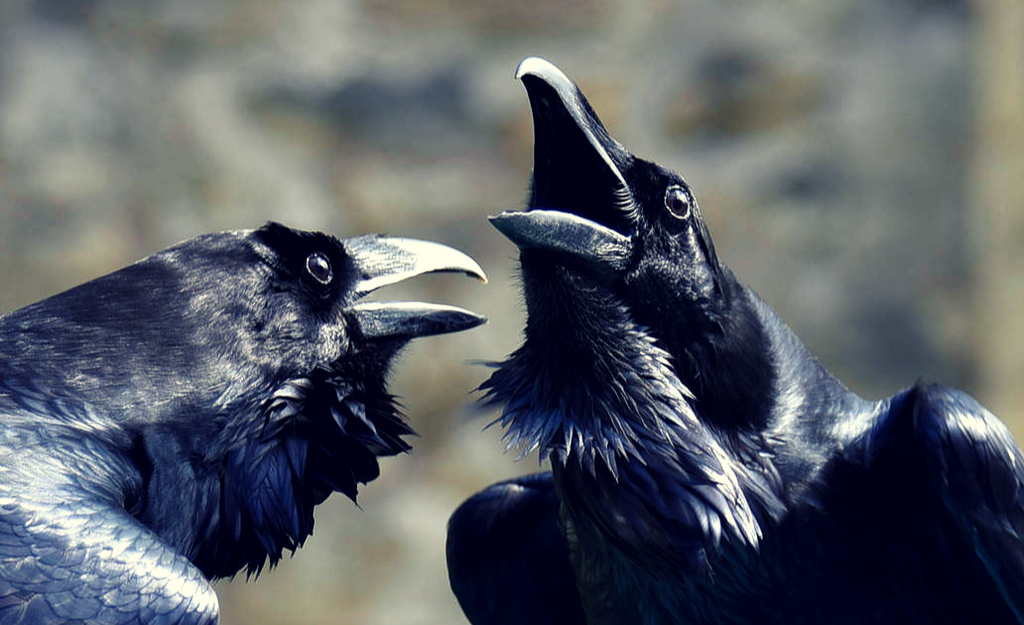What Odin Tried To Tell Us By Huginn and Muninn Viking Ravens?
Among the animal and bird kingdom in Norse mythology, ravens must be the most respected and mysterious. Because ravens were the symbol of Odin the Allfather who was the Aesir chief god. Clearly, ravens were not merely the birds perching on Odin's shoulders and whispering into his ears. They possessed a figurative way of interpretation which is also a message from Odin. This piece of writing tries to explain in a precise and concise way.
HUGINN AND MUNINN THE RESPECTED VIKING RAVENS
Huginn and Muninn were a kind of knowledge source that Odin always welcomed. Odin, as we know, was a nonstop knowledge seeker. He was willing to pay a high price just to gain more knowledge and wisdom. He surrounds himself with anything that could quench his thirst for knowledge: the High Throne, the wise Mimir, and the ravens.
Huginn and Muninn were their names. We don't know exactly who wrote down their names. But they meant "Thought" and "Mind" respectively.
When the sun started to shine on the skyline, Odin let Huginn and Muninn fly away around the Nine Worlds. The ravens flew around for a day to observe what the Norse creatures did. And when the dawn broke on the sky, they came back to Asgard to tell Odin what they had seen.

Huginn and Muninn would fly around the Nine Worlds to observe what happened and would come back to tell Odin
In one part of the Poetic Edda, Odin mentioned his constant companions to Aggnar the Prince:
Hugin and Munin fly each day
over the spacious earth.
I fear for Hugin, that he come not back,
yet more anxious am I for Munin.
ODIN'S MESSAGE
Odin was worried that his Huginn (Thought) might not come back. But he was more worried about Muninn (Mind). Many of us assume that Thought is Mind. In other words, we think Thought and Mind are similar as one entity. But this is a false assumption.
Our mind is one of few most fascinating and captivating things in the cosmos. Not only does the mind store the knowledge and experience but they also help us express and control our viewpoint, our ego, and everything around us.
Our thought, meanwhile, is a part that the mind takes in and can erase. A thought is the data the mind digest. Many thoughts will be stored in the memory or the mind generally.
Odin was worried for both ravens would not come back but more for Munin whose name meant "Mind". The message is quite clear, that is:
Losing the mind is much worse than losing the thought. Both are important for us. But the mind is a little bit more important. Because, as mentioned, it stores knowledge and experience and they also help us to understand the world around us and interpret our own self.

Losing your mind is the worst thing. Because it means you are no longer to see things as the way they are. You cannot even reflect and revalue yourself. Then if you cannot reflect, you cannot understand and dig deeper what is inside you.
Some people claim that it is far better to follow your heart than follow your mind. Then they choose to lose their mind. But Odin seemed to not follow this belief. To Odin, there was nothing as precious as the purity of the thought and the mind where he could store his wisdom and where helped him to take everything consideration. Both mind and heart keep us alive. But between what could make him blind (the heart), he chose to protect his mind.
Generally, Odin was a type of cold-mind because only the cold-mind persists on their mind rather than their heart. But most of the time, the cold-mind became the leader, the guide because they are wise. And more importantly, they are not blinded by the feeling which leads them to the wrong decision.




